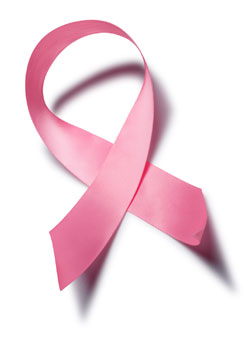
The pink war
In 1971 while a college freshman, I won (by losing) the only lottery I ever entered, when the Selective Service drew birthdays out of a hopper and announced them on the radio to an anxious, naïve 18 year-old male audience. Based on how long I waited for my birth date to surface (drawn 350th), I knew it was unlikely I’d ever be drafted for duty in Vietnam. My roommate was not so lucky. His number came up, rather quickly.
Then in 1973, Tim O’Brien published a nonfiction account of his tour as a foot soldier in Vietnam, If I Die In a Combat Zone, Box Me Up and Ship Me Home, which received critical acclaim, cited by the New York Times Book Review as “a beautiful, painful book.” Ouch, I said to myself at the time. Dying in a combat zone sounded as complicated as surviving to tell about it.
More than 40 years later, it’s clear all our numbers are coming up once more, male and female alike, but the U.S. military has no interest in most of us. Rather, it’s the doctors, anesthesiologists, audiologists, cardiologists, endocrinologists, gynecologists, oncologists, surgeons and urologists, to name an orderly few. They have been reassigned as commanding generals, with a troop of statisticians occupying the offices of hospitals and geriatric wards, yanking our birth dates out of thin air. It’s still a crap shoot, but the war we are waging is on aging.
It’s not until you’ve been conscripted as a mature adult into medical boot camp that the full scale of the struggle is revealed. I know, aging sounds mild compared to the actual front lines of places like Vietnam or Afghanistan. The annual checkup. Reducing dietary salt and sugar. Eating more fish. Loading up on fiber. Exercise. Cutting back to only one or two glasses of wine. Napping. Going to bed earlier. For the longest time, I suspected these health recommendations were the actual ingredients for an eternal life. Now I know they’re just the latest medical study refurbished as a news story.

The first surgery I encountered is one of my first memories. My tonsils came out, a practice that doesn’t happen so often these days, and though I remember nothing about the procedure, what I remember vividly is the image of a white hallway, a rolling bed, and being handed a plastic coin purse with foiled chocolate coins inside. These represented the kind of gold that exceeds any market value. They were payment from my parents for having gone quietly, offering myself as a compliant victim.
As a preteen, I was hospitalized again with mononucleosis, but the high fever and steady supply of hypodermic needles wiped the memory entirely. Whatever they did to me, I was fine with it, but I learned afterward that I’d been knocked down by what’s known as The Kissing Disease. Just my luck. Confined to a bed and still years away from dating, I felt cheated.
Now, as an aging American, I’ve seen a few more procedural inspections than a rank private. I’ve had two colonoscopies, two hernia operations, and a final indignity I’m still not prepared to talk about in print. I’m sure there’ll be more indignities, but I mention this one because it qualifies as the most recent, and the memory scar tissue is still healing.
But there is something worse, despite my rather dramatic accounting of a fairly tame personal medical history. I’ve been saving it for the end because I’m not quite sure how to talk about it, hoping that if I talk myself into a corner it will come out. This must be the corner.
It’s nearly impossible to watch someone you love be diagnosed with breast cancer. But she faced her treasonous cells and made all the decisions required of her without flinching, without giving up any ground, without simply doing what she was told by the generals. She lived an entire lifetime in a few precious months learning everything possible about her chances of winning the war. No guarantees. She was on her own. The medical trauma I will remember most vividly from this point in my life forward is knowing all I could do was stand by and “be supportive.”
Simply put, I would rather face an afternoon of open heart surgery, without anesthesia, performed with a rusty Boy Scout camping knife than to know the woman I love, along with another 50,000 women annually, must confront breast cancer surgery, because it is a terrorist we cannot contain. What else can I say?
This isn’t a novel.
Tim O’Brien as an aging adult might still have the opportunity to write a different book, If I Die In a Hospital Zone, Biopsy My Body and Slide It Home. Same difference, although the reviews would probably claim it’s just painful, nothing beautiful about it.
– David Feela
In this week's issue...
- December 18, 2025
- Let it snow
Although ski areas across the West have taken a hit, there’s still hope
- December 18, 2025
- Look, but don't take
Lessons in pottery theft – and remorse – from SW Colorado
- December 11, 2025
- Big plans
Whole Foods, 270 apartments could be coming to Durango Mall parcel
